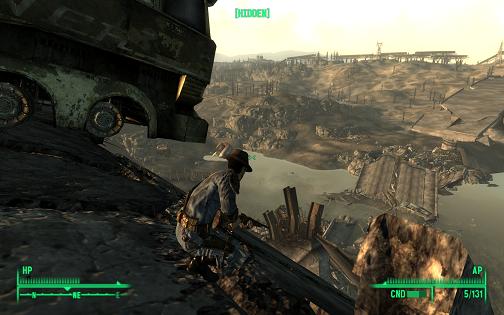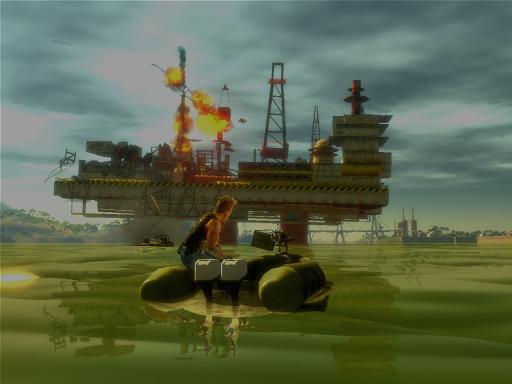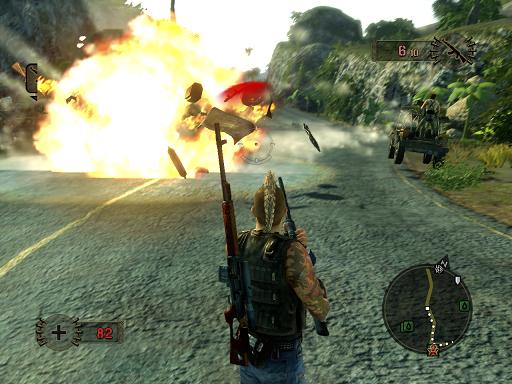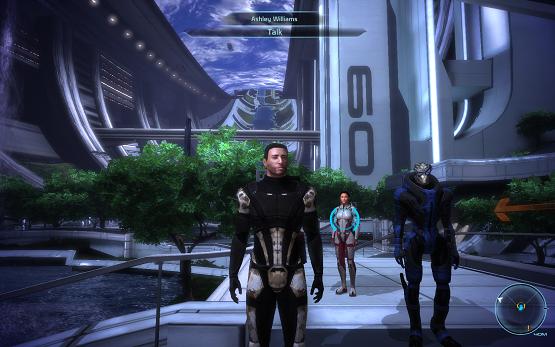
I’ve been playing Fallout 3 for about a week now, and I can happily say that it’s probably one of the best games I’ve ever played. When people talk about open-world games, the first thing that usually comes to mind is the Grand Theft Auto series and its legion of imitators, but Bethesda Softworks have been making three-dimensional open worlds since Arena was released in 1994. It was at that time insanely ambitious but successfully set the stage for a series that would become known for its huge, open worlds rendered in lush, beautiful graphics and a completely open and free-form design that could leave some players paralyzed by the bewildering array of possible places to go and things to do in the game.
Fallout 3 is in some ways the logical conclusion of one end of that evolution: the video game as immersive virtual world. Reading the comments by detractors in this thread on LYN for example (most of whom it seems were complaining about a game that they’d pirated since they started playing it before it was actually released), it’s obvious that many of them didn’t get what this game is about. Take for example the complaints about how short the game is. It’s still early days yet in my journey through the wastes, so I can’t fully tell whether this is true or not, but I suspect that if you make a beeline for the main quest and barrel through it to the exclusion of everything else, you’d end up finishing the game in fairly short order.



